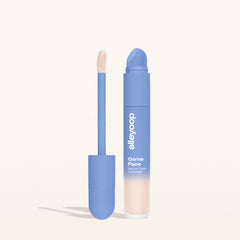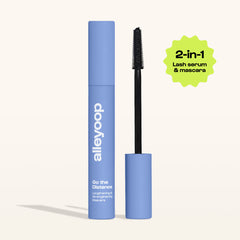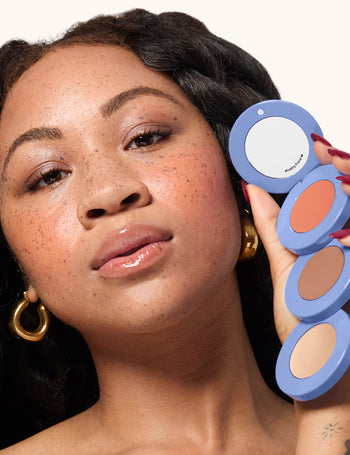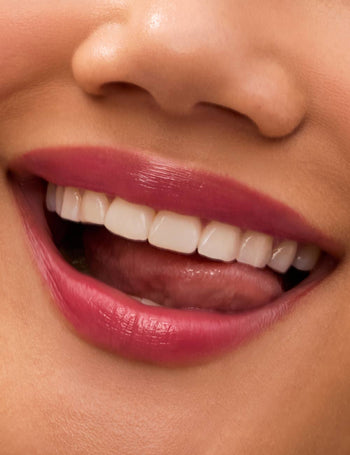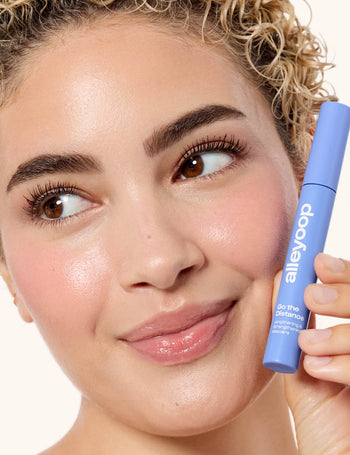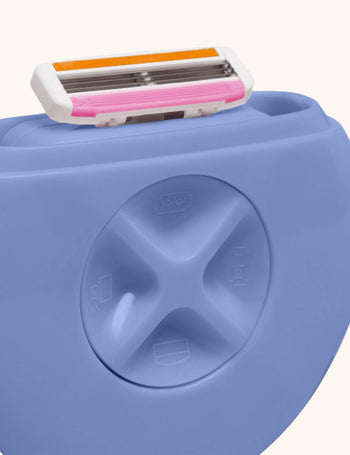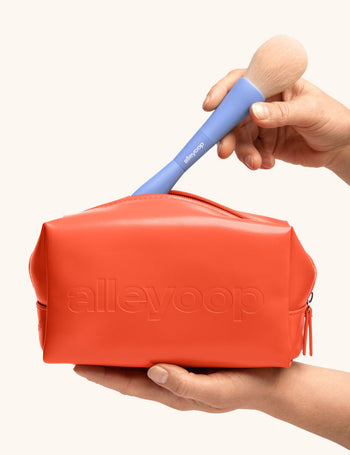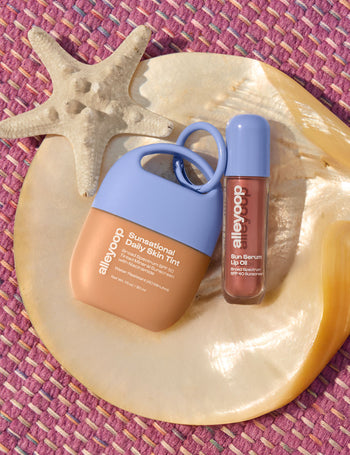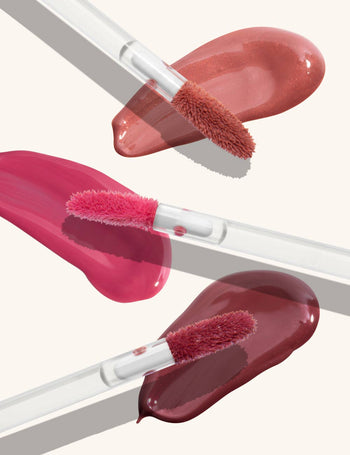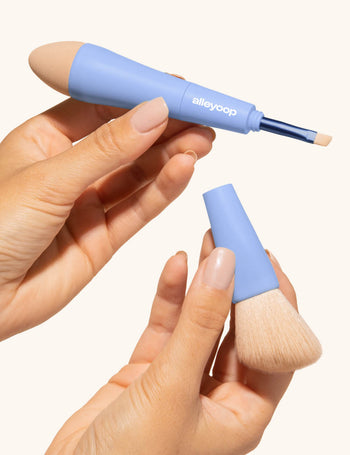How Often Should You Use a Face Mask?
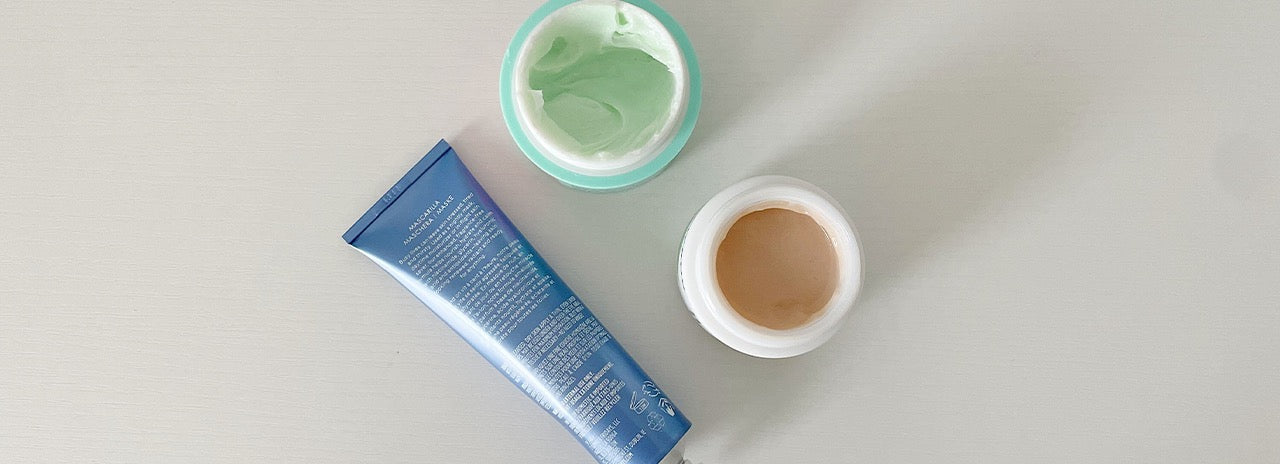
Are you an avid skincare enthusiast who enjoys a luxurious face mask? Unlike other products in your skincare routine, such as your cleanser and moisturizer, a quality face mask can give you instant results, such as a healthy glow or reduced blackheads.
But how often should you use a face mask? Here’s what you should know.
How Often Should You Use a Face Mask?
We know we should always add a face mask to our skincare routine, but the real question is how often we should use a face mask.
Every skin type has specific needs related to its skincare routine. Due to the unique differences, it is often difficult to pinpoint precisely how often everyone should use their face mask.
However, based on your skin type and the type of face mask you use, we can give you a pretty good idea of what would be best for your self-care routine.
The reality is you always know your skin and your body best.
So, if you are in doubt, contact the company or chat with your dermatologist to make sure you are doing what is best for your skin. It’s essential to use your face mask as recommended because you don’t want to experience any adverse effects of applying it too often (we’ll get more into that later on!).
Most Common Types of Face Masks
Let’s explore the most common type of face mask and determine the best one for you and how often you should use your face mask.
Clay and Mud Masks
One of the most common types of face masks is clay masks. Easy to spot and easy to use because of their thick consistency and powerful detoxing abilities.
Clay and mud masks are an excellent option for most skin types, particularly combination or any skin type that needs clarifying or purifying the pores and skin. Most clay or mud masks are best used once to three times a week, depending on the product.
Detoxifying face masks are best used only once a week for those with sensitive skin.
Sheet Masks
Sheet masks have become super popular over the last few years. And for a good reason. Sheet masks come in a large selection of formulas for all skin types. They are easy to use and easy to apply.
They are excellent for nourishing tired, stressed-out skin. They have various serums and moisturize already infused in the sheet and hydrates the skin while sitting on your face.
The best part?
For most skin types, sheet masks are okay to use several times a week unless listed in the instructions. Some even recommend using your sheet mask every day to lock in moisture and other nutrients your skin needs.
However, only use it every day if it works for your skin type.
On that note, always check the particular type of sheet mask you purchased and follow the directions carefully because some skin types should not use sheet masks every day.
For example, some are more potent to help with certain skin types, such as acne-prone skin. Also, it is best not to use the harsher sheet masks more than the recommended usage.
Enzyme and Exfoliating Masks
Enzyme and exfoliating face masks are the most aggressive formula; therefore, used less often than other face masks. In addition, enzyme and exfoliating face masks usually contain ingredients prone to aggravate sensitive or acne-prone skin.
For this reason, an enzyme or exfoliant face mask should be used only every few weeks or once a week if the instructions indicate weekly usage.
Natural Masks
Natural face masks, also known as DIY face masks, can typically be made from ingredients you already have around your house, such as cucumbers, oats, honey, and yogurt.
Natural (DIY) face masks are great for sensitive skin or if you can’t have other ingredients on your skin, such as fragrance. Some natural face masks call for acidic ingredients such as apple cider vinegar but use those ingredients moderately and sparingly.
However, just like with every other kind of face mask, moderation is key.
When used on the face, even all-natural ingredients can negatively affect your skin if used more than recommended. The good news is, most skin types can use natural face masks up to two or three times a week. But make sure to do a skin patch test first to see how your skin reacts.
Charcoal Masks
Charcoal face masks, along with charcoal lattes, have surged in popularity in the last few years. Activated charcoal has many potential benefits on the skin because of its natural ability to detox the body from impurities and help heal acne and blackheads. Charcoal masks are best for those with oily or troublesome skin types because it removes impurities.
Due to their ability to clear the skin, they dry it out and remove some of the nourishment and hydration your skin also needs. Use charcoal masks only once a week or once every few weeks to protect your skin from damaging the balance of your natural oils on the skin.
Cream Masks
Cream face masks are great for hydrating your skin by providing a lightweight formula to sit on your skin and moisturize your face without adding extra weight or harshness to the skin.
As always, check with your particular brand of face masks before using them more than once a week, but generally, cream-based masks are good to use multiple times in a week if your skin requires nourishment.
Gel Masks
Gel face masks are typically okay to use once a week or up to three times a week. Always check the instructions for the particular face mask you are using. However, gel face masks tend to be of lighter weight and are excellent for most skin types, especially for those with normal to combination skin, because of their ability to soothe and refresh.
Signs You May Be Over-Masking
It’s incredibly easy to have too much of a great thing. Face masks are no different. But, unfortunately, as much as they provide our skin with nourishing ingredients, they can do more harm than good if used incorrectly or too often.
Over-masking, or masking too often, is something that happens when you notice your skin responding negatively to your typical face mask.
Furthermore, over-masking can lead to damage to the outer skin barrier that protects your skin from environmental pollutants and sun damage. It can lead to a disruption in your skin’s natural oils as well.
In extreme cases, over-masking can lead to rashes and other signs of facial rashes and skin concerns. A few of the most common signs of over-masking include, but are not limited to:
- Breakouts
- Itching and burning sensation
- Peeling skin, especially around the nose area
- Redness
- Dryness
- In extreme cases, allergic reaction
The good news is it is usually easy to spot over-masking relatively early, and with a short break from using your face mask or other products such as exfoliants, your skin will be back to new in no time.
Face masks are a significant step in your weekly self-care routine. They provide the necessary nourishment, hydration, and relaxation that we all need regularly. But, unfortunately, sometimes too much use of your regular face mask can have the opposite effect on the skin we want.
Depending on your skin type and needs, you can find a face mask that works well for you. For most skin types, once a week is as often as you should use a face mask.
However, as always, check with your dermatologist to make sure you use a face mask that is best for your skin and as often as needed.
What Are the Best Ways To Minimize Your Self-Care Routine?
We know how busy you are, which is why we have products for women on the go, just like you. But, as crucial as self-care is to your daily routine, we know you value efficiency, and maybe you have been over-masking, or perhaps you are just looking for ways to find multi-functional products to simplify your self-care routine.
Our About Face Cleansing Mitts are a great way to gently cleanse or exfoliate if you have been over-masking or just need a way to remove the excess layer of dead skin cells before you put on your face mask.
Also, don’t forget to wash your exfoliating gloves regularly to keep extra germs and bacteria from coming in contact with your skin. Finally, an excellent option for busy women on the go is our Day Away Duo Cleansing Kit. It has everything you need to effectively remove excess dirt and buildup to provide a perfect canvas for your weekly face mask routine.
And, of course, all of our products are travel and TSA-friendly because you don’t have time for unnecessary products or steps to keep you moving!
Summary
All in all, use a face mask at least twice a week for most skin types. For specific skin and face mask types, you can use them more than once a week.
Regardless of how often you use a face mask, giving yourself a few minutes to rest and relax while providing your skin with fantastic nourishment and hydration will help you take on the world (or Monday morning, whichever comes first!).
Our team at Alleyoop has put together a short declutter quiz to help you determine how much time you spend on your makeup routine. After you take the quiz, we will provide a personalized bundle of compact, time and energy-saving products to help you cut the clutter and get your time back!
Have you already started minimizing your makeup routine? We’d love to hear what has worked for you!
Join the #alleyooptroop and share your experiences with us!
Sources:
How Often Should You Use Face Masks At Home | Refinery29
Using a Sheet Mask Every Day Has Major Skin Benefits — Expert Advice | Allure
The Science of Beauty: The Complete Guide to Skin-Care Masks | Allure





